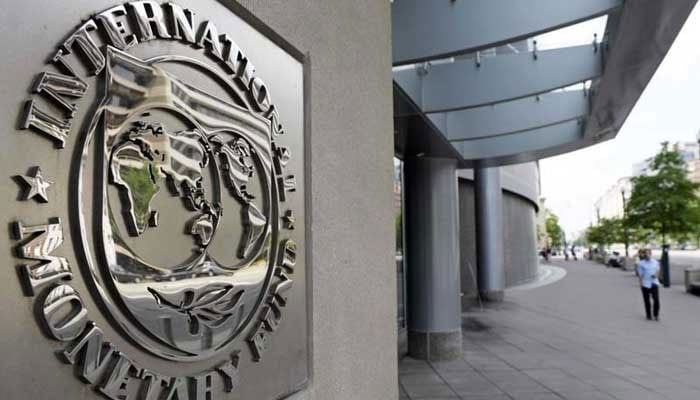Negative primary balance to minor surplus: Govt asks IMF to revise downward pace of fiscal adjustments
ISLAMABAD: The government has asked the Fund to revise the downward pace of fiscal adjustments for converting the primary balance from negative in the outgoing fiscal year into a minor surplus for the coming budget.
Top official sources confirmed to The News on Wednesday that the government took the decision of freezing expenditures’ major heads while it allocated bloc allocation of Rs160 billion for raising pay and pensions for public sector employees for the upcoming budget 2021-22.
Top relevant official sources said the government wanted to convert the primary deficit of negative 1 percent of GDP in outgoing fiscal year to negative 0.1 percent or maximum positive 0.1 percent of GDP against the Fund’s envisaged target of positive 0.8 percent of GDP for 2021-22. The fiscal framework required massive adjustments and agreement between the two sides and success of technical level talks would depend upon agreement on petroleum levy and the FBR’s taxation target.
The IMF program envisaged conversion of primary balance from deficit into surplus as major condition of the Fund program. The primary deficit is calculated after excluding debt servicing, so it is the condition of the Fund program to convert primary deficit into surplus. There will be two ways left, either to cut down other expenditures such as defence, development, running of the government, subsidies or raise tax and non tax revenues because there is no option to convert primary deficit into surplus.
The government will raise salaries over and above the disparity allowance for public servants by jacking up around 10 to 12.5 percent. The government has decided announcing contributory pension for new entrants into job markets in the coming budget.
The Pay and Pension Commission, led by former bureaucrat Nargis Sethi, has recommended only raise in pay and pension in her interim report submitted to the government but the commission does not recommend anything on the concept of contributory or defined pension system. However, the Pay and Pension Commission is all set to recommend to the government to propose legislation changes, enabling the government for placing contributory pension for new entrants at the time of signing terms and conditions of entering into the public service. At least, this kind of change will empower the government to place contributory pension for new entrants as and when required by the government under the law of the land.
This scribe contacted the IMF’s Resident Chief in Pakistan, Teresa Daban Sanchez, and inquired from her about kick-starting virtual deliberation between two sides for
finalising budgetary estimates. She said “the IMF team and Pakistani authorities remain engaged conducting technical meeting with a view to initiate discussions regarding the 6th Review under EFF. There is not envisaged any interaction with the press during these meetings and discussions”. When the Ministry of Finance was contacted for comments, the official said that both sides continued engagements as its part of normal process. The official said that the IMF desired to bring down the primary balance from negative 0.5 percent of GDP in outgoing fiscal year to positive 0.8 percent of GDP in upcoming budget for 2021-22. Now the government wants to curtail the primary surplus at 0.2 percent of GDP by arguing before the IMF that the third ongoing wave of Covid-19 pandemic made it hard for them for fiscal adjustments at rapid pace. So the Pakistani side wanted to reduce the pace of adjustments, so it might result into suspension of ongoing Fund/ program for short to medium term period.
-
 Christina Applegate Recalls Abusive Relationship, Shares 'lesson' For People Dating 'broken Birds'
Christina Applegate Recalls Abusive Relationship, Shares 'lesson' For People Dating 'broken Birds' -
 Prince William Refuses To Let This Era Be 'one Where The Crown Flinched'
Prince William Refuses To Let This Era Be 'one Where The Crown Flinched' -
 Backpack Full Of 'Molotov Bombs' Found In Texas After Series Of Fires
Backpack Full Of 'Molotov Bombs' Found In Texas After Series Of Fires -
 Savannah Guthrie Releases 'gut-wrenching' Message Amid Criticism Of FBI Director
Savannah Guthrie Releases 'gut-wrenching' Message Amid Criticism Of FBI Director -
 Naomi Watt Recalls Daughter Kai Slamming Met Gala Dress In Front Of Famed Designer Himself
Naomi Watt Recalls Daughter Kai Slamming Met Gala Dress In Front Of Famed Designer Himself -
 Jasmin Lawrence, Eric Murphy Excite Fans By Revealing Baby's Name Post Pregnancy Announcement
Jasmin Lawrence, Eric Murphy Excite Fans By Revealing Baby's Name Post Pregnancy Announcement -
 Kate Middleton, Prince William 'power Players' In Firm Stance On Andrew
Kate Middleton, Prince William 'power Players' In Firm Stance On Andrew -
 Princess Eugenie Spotted In London For The First Time Since Andrew's Arrest
Princess Eugenie Spotted In London For The First Time Since Andrew's Arrest -
 How AI Learns To Be Human-like: Anthropic Persona Selection Model Explained
How AI Learns To Be Human-like: Anthropic Persona Selection Model Explained -
 Reflection On Trump's Economic Agenda: Outcomes Of New Policies Amid Political Challenges
Reflection On Trump's Economic Agenda: Outcomes Of New Policies Amid Political Challenges -
 Laura Ann Tull: Eric Dane's Exit From 'Grey's Anatomy' Contradicts Accuser's Claims
Laura Ann Tull: Eric Dane's Exit From 'Grey's Anatomy' Contradicts Accuser's Claims -
 Ex SAG AFTRA President Recalls On Set Injury That Left Her Looking Like 'the Joker'
Ex SAG AFTRA President Recalls On Set Injury That Left Her Looking Like 'the Joker' -
 Savannah Guthrie Prepares Mentally For Nightmare Scenario Over Mom Nancy Missing In New Video
Savannah Guthrie Prepares Mentally For Nightmare Scenario Over Mom Nancy Missing In New Video -
 Two Missouri Deputies Killed, Two Injured After Suspect Opens Fire
Two Missouri Deputies Killed, Two Injured After Suspect Opens Fire -
 Royal Expert Claims Police Search Office Of Andrew At Buckingham Palace
Royal Expert Claims Police Search Office Of Andrew At Buckingham Palace -
 Robert Carradine Final Instagram Post Masked Deep Pain Before His Shocking Suicide
Robert Carradine Final Instagram Post Masked Deep Pain Before His Shocking Suicide




